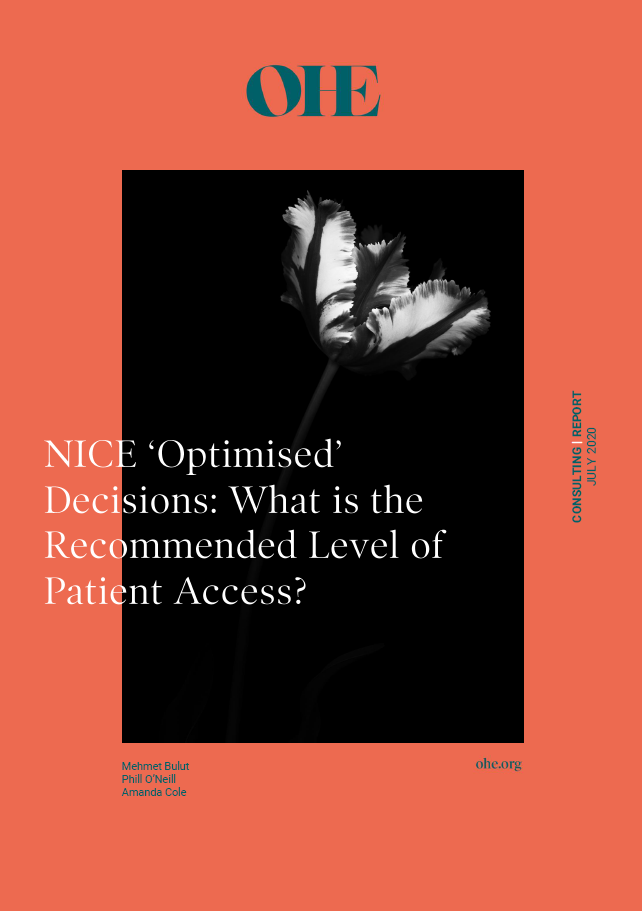Sign up to our newsletter Subscribe
NICE ‘Optimised’ Decisions: What is the Recommended Level of Patient Access?

Sign up to our newsletter Subscribe

OHE’s Jon Sussex is spoke today on the value of medical research at the 2013 BioWales conference, one of the UK’s largest life sciences conferences. Celebrating its eleventh year, this conference focuses on the links between NHS, industry and academia in delivering tomorrow’s health solutions. Jon’s presentation examined the value of medical research, which involves all three sectors in the UK: public, private and charity.
OHE’s Jon Sussex is spoke today on the value of medical research at the 2013 BioWales conference, one of the UK’s largest life sciences conferences. Celebrating its eleventh year, this conference focuses on the links between NHS, industry and academia in delivering tomorrow’s health solutions.
Jon’s presentation examined the value of medical research, which involves all three sectors in the UK: public, private and charity. Despite concerns to the contrary, the three do not compete but act synergistically, with combined spending totalling some £8 billion per year. The gains for health care from medical research, while very good, may take years to realise: an earlier analysis by OHE, with Brunel University and RAND Europe, estimates an average time lag of 10-25 years. Economic returns, which also are substantial, are realised sooner than health benefits. Health and economic benefits both can be increased by reducing time lags in research and development and speeding up the NHS’s currently slow rate rate of uptake of the results of research.
Related research available on the OHE website
HERG, OHE and RAND Europe. (2008) Medical research: what’s it worth? London: Office of Health Economics.
Mestre-Ferrandiz, J., Mordoh, A. and Sussex, J. (2012) The many faces of innovation. Second edition. London: Association of the British Pharmaceutical Industry.
OHE and RAND Europe. (2010) Enhancing the benefits from biomedical and health research spillovers. Occasional Paper. London: Office of Health Economics.
An error has occurred, please try again later.
This website uses cookies so that we can provide you with the best user experience possible. Cookie information is stored in your browser and performs functions such as recognising you when you return to our website and helping our team to understand which sections of the website you find most interesting and useful.
Strictly Necessary Cookie should be enabled at all times so that we can save your preferences for cookie settings.
If you disable this cookie, we will not be able to save your preferences. This means that every time you visit this website you will need to enable or disable cookies again.
This website uses Google Analytics to collect anonymous information such as the number of visitors to the site, and the most popular pages.
Keeping this cookie enabled helps us to improve our website.
Please enable Strictly Necessary Cookies first so that we can save your preferences!